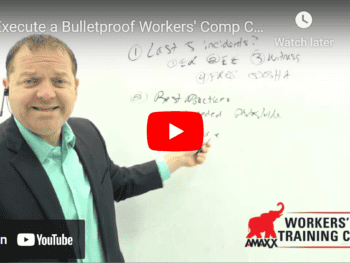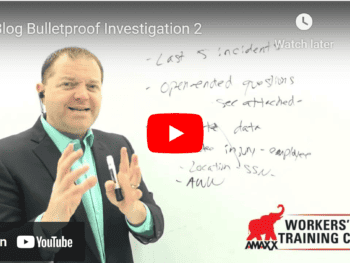
Hack #1: Never Let a File Collect Dust
An effective defense attorney needs to keep files moving and never collect dust. This requires the defense attorney to handle a high volume of cases effectively and efficiently. When doing this, it is vital to take the following steps to make life easier for the claim handler:
- Acknowledge receipt of all newly received files promptly. In your acknowledgment email, ensure the claim team has your complete contact information and members of your team – legal assistant, paralegal, and any associate attorney who may be working on the file.
- Set expectations early on. Let the claim handler know what they can expect regarding the initial status report and litigation budget. Then deliver on that promise.
- Keep files moving. The file that collects dust is the file that causes problems. Ensure every action performed on a file advances it toward settlement or hearing.
A successful defense attorney must be proactive and keep the claim team updated on a file’s progress.
Hack #2: Regular Status Reports
Claim handlers want to know what is related to files referred for defense. This allows the claim handler set reserves and keep the claim manager updated. Failure to keep a claim handler updated will reduce the chances of receiving future work.
One tool that updates the claim handler is a regular status report prepared at regular intervals and following significant events on a file.
- Facts of the Case: The initial report should outline the facts of the case as they are known. As a case is developed, this information will change. Keeping the claim handler updated consistently as new facts are ascertained allows the claim management team to fill in blanks and update their system.
- Discussion and Analysis: Every report should discuss how the facts impact the case. Important concepts should include the average weekly wage, issues concerning primary liability, the medical evidence (nature/extent of injury, need for future care, etc.), and the strength of each defense to a claim. It is also important to analyze the changes in success and what steps need to be taken to move the claim forward.
- Recommendations for Further Handling: Claim handlers want to know what needs to be done next. This allows them to justify the money spent on discovery, independent medical examinations, and surveillance. Failing to keep the claim handler apprised of what needs to happen can result in friction and excessive money spent to defend a claim.
The status report is an essential tool that every defense attorney can use to set the claim up for success. It communicates the story of the case and sets the claim up for timely settlement – and success!
Hack #3: Suggest Regular File Reviews
A proactive defense attorney should suggest regular file reviews with the full claim team. These reviews should also include employer representatives. There is no set structure for a file review. Suggestions include the following:
- Avoid blame. Keep things upbeat and proactive.
- Include all interested stakeholders. Ideas often become better through the collective whole.
- Use the review to evaluate defenses and drive the claim toward a successful conclusion with an emphasis on settlement.
- Suggest holding file reviews in person where practical. This provides everyone the chance to develop trust and confidence in each other.
There are many tangible and intangible benefits to a file. Successful defense attorneys will use them to reach better results and advance their careers.
Hack #4: Know When you Need Help!
Successful defense attorneys sometimes do not have all the answers. This is an opportunity to grow professionally.
- Work with more seasoned attorneys within your firm to grow professionally and handle more complex cases.
- Speak at continuing legal education courses to advance your knowledge and reputation within the legal community.
- Know when you might need help on complex employment matters and issues such as Medicare Secondary Payer compliance.
Never forget empathy. This is especially the case when working with overly aggressive opposing counsel.
Conclusions
Defense attorneys play an important role in reducing workers’ compensation costs. This all starts with employing “hacks” to defend claims better. It all starts with tactics to keep files moving and ensure the claim handler knows what is going on with a claim. Regular status reports are a must, and never be afraid to grow professionally. These steps can allow a defense attorney to grow and better defend claims.
 Author Michael Stack, CEO Amaxx LLC. He is an expert in workers’ compensation cost containment systems and helps employers reduce their workers’ comp costs by 20% to 50%. He works as a consultant to large and mid-market clients, is a co-author of Your Ultimate Guide To Mastering Workers Comp Costs, a comprehensive step-by-step manual of cost containment strategies based on hands-on field experience, and is the founder & lead trainer of Amaxx Workers’ Comp Training Center, which offers the Certified Master of Workers’ Compensation national designation.
Author Michael Stack, CEO Amaxx LLC. He is an expert in workers’ compensation cost containment systems and helps employers reduce their workers’ comp costs by 20% to 50%. He works as a consultant to large and mid-market clients, is a co-author of Your Ultimate Guide To Mastering Workers Comp Costs, a comprehensive step-by-step manual of cost containment strategies based on hands-on field experience, and is the founder & lead trainer of Amaxx Workers’ Comp Training Center, which offers the Certified Master of Workers’ Compensation national designation.
Contact: mstack@reduceyourworkerscomp.com.
Workers’ Comp Roundup Blog: http://blog.reduceyourworkerscomp.com/
©2022 Amaxx LLC. All rights reserved under International Copyright Law.
Do not use this information without independent verification. All state laws vary. You should consult with your insurance broker, attorney, or qualified professional.



























